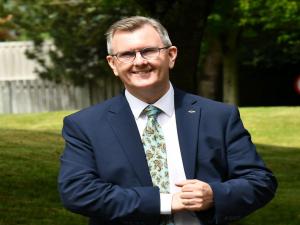
Q Radio News/PA
Temporary fixes or tinkering around the edges will not resolve problems with the Northern Ireland Protocol, the DUP has warned.
Party leader Sir Jeffrey Donaldson made the comments after UK Brexit negotiator Lord Frost called on the EU to agree to fundamental changes to the post-Brexit trading arrangements that govern the movement of goods across the Irish Sea.
However, Sinn Fein vice president Michelle O’Neill accused the UK Government of “acting duplicitously” in negotiations with the EU and “attempting to tear up yet another international agreement”.
“The attempts by the Tories and the DUP to undermine the protections and opportunities of the protocol and impose a hard border must be opposed,” she added.
On Wednesday, the EU will outline proposals it believes can reduce trading disruption and friction that has been witnessed since the protocol came into operation in January.
But the EU has made clear it does not intend to move on a key UK demand – removing the role of the European Court of Justice in overseeing the protocol.
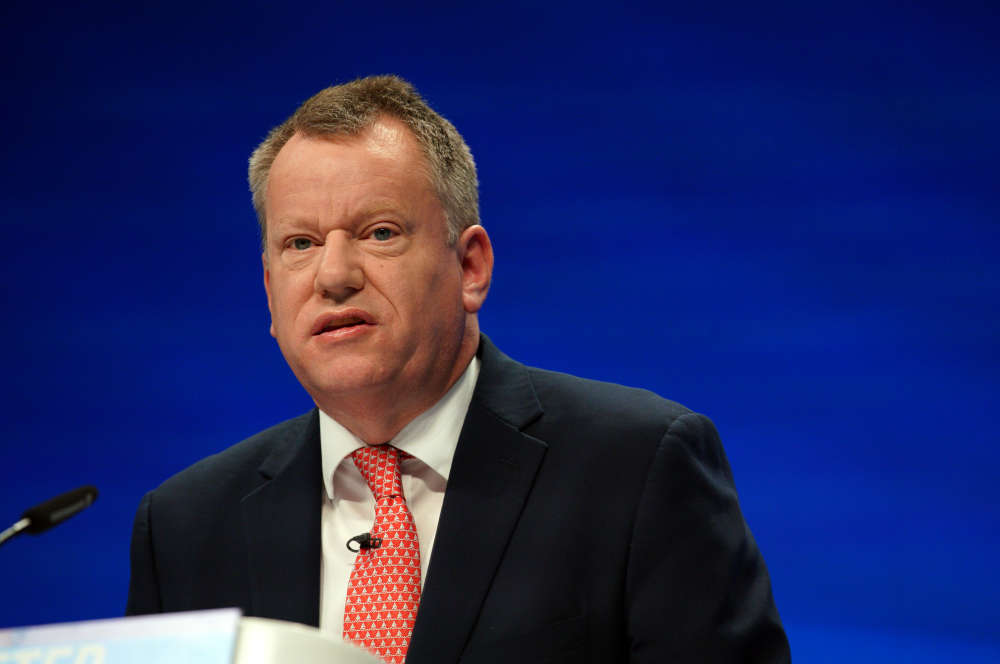
Lord Frost
In a speech in Lisbon on Tuesday, Lord Frost said without scrapping the ECJ arbitration role, the protocol could never command the support of both unionists and nationalists in Northern Ireland.
Responding to the speech, Sir Jeffrey said: “The protocol does not have the support of a single elected unionist in Northern Ireland.
“If it is not replaced, then it will condemn Northern Ireland to further harm and instability. It is already costing us £850 million per year and undermining the Union.
“The people who live and work here need a solution which can command support throughout the community. That is why, when I became leader just over 100 days ago, I made this my number one priority.
“This is not a time for tinkering around the edges with temporary fixes. We need a long-term solution which will then allow us all to plan and get back to focusing on fixing our public services rather debating the protocol.”
Ulster Unionist MLA Steve Aiken said: “That Lord Frost is asking the EU to help maintain the delicate balance between the communities in Northern Ireland should give those in Brussels and Dublin pause to consider the way in which they wish to conduct the critical negotiations that will follow.
“We, in the UUP, also look forward to the EU’s proposals and the new legal texts being put forward by London.
“We will consider all of these closely and we would encourage all stakeholders, in particular those in Dublin, to be particularly careful in further avoiding inflaming tensions.”
SDLP MLA Matthew O’Toole criticised Lord Frost’s remarks.
“The European Union is poised to make proposals which we hope will contribute to repairing relationships across these islands and managing the flow of trade between Northern Ireland and Britain under the protocol. It is frankly a bad faith intervention for the UK Government to distort the facts of the protocol and peddle misinformation on the eve of a new round of negotiations,” he said.
“It is a fact that Lord Frost negotiated the protocol, agreed to its terms and backed Boris Johnson’s campaign to sell it during the last general election. To suggest now that he did not support it is an industrious piece of dissembling.”

Stephen Farry
Alliance Party deputy leader Stephen Farry claimed the UK Government was more interested in continued confrontation than seeking solutions.
“Rather than await the proposals from the European Commission on Wednesday, he has chosen to enter into another layer of delusion,” he said
“Brexit was imposed on Northern Ireland against the will of a majority of people. With any hard Brexit, some form of special arrangements were inevitable to address the particular challenges of a society that only works on the basis of sharing and interdependence.”
TUV leader Jim Allister said: “If, as Lord Frost says, it is the UK that governs NI, then there must be an end to the EU’s writ in this part of the UK – that requires us not being subject, not just to the ECJ, but EU laws and an end to GB being a ‘third country’ in terms of trade. Put simply, it requires an end to the protocol in all its parts.”


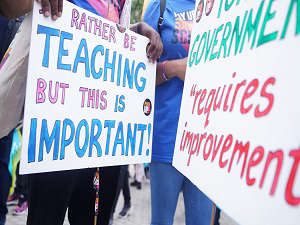 Teacher unions to ballot members for industrial action over pay
Teacher unions to ballot members for industrial action over pay
 Police apologise as watchdog finds Katie Simpson’s family ‘failed’ by probe
Police apologise as watchdog finds Katie Simpson’s family ‘failed’ by probe
 O’Neill lays wreath at Cenotaph in Belfast on Remembrance Sunday
O’Neill lays wreath at Cenotaph in Belfast on Remembrance Sunday
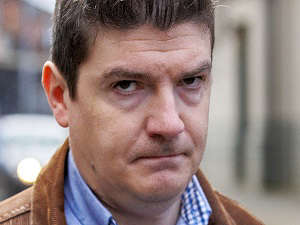 Former Sinn Fein press officer jailed for child sex offences
Former Sinn Fein press officer jailed for child sex offences
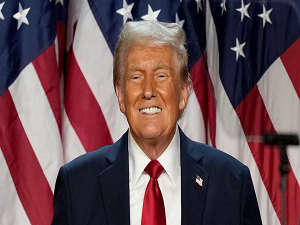 Mixed reaction from Northern Ireland’s political leaders to Trump presidency
Mixed reaction from Northern Ireland’s political leaders to Trump presidency